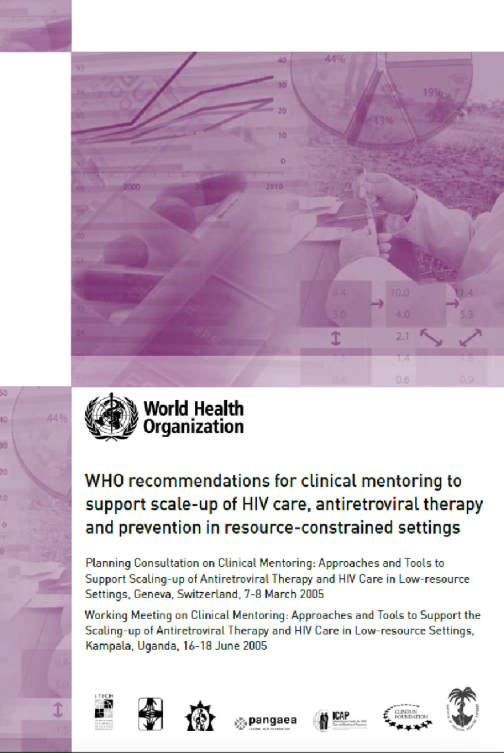Mentoring and quality improvement after training
All IMAI training curricula emphasize on-site ongoing learning and quality improvement, supported by clinical mentoring visits. Often trainers based at district or regional hospitals are involved in the clinical team training for first level health facilities then become mentors.
Support for adopting quality improvement approaches in the district hospital is a key part of implementation planning by the clinical team at the end of the Quick Check+ training. This is emphasized in the training module for Managers, the most recent being the PMME module in the SEARO SARI tools:
SEARO IMAI Planning, Mentoring, Monitoring and Evaluation module (PMME) (link to SEARO SARI web) This is for use during health facility visits before and after training. It can be used in training hospital managers and administrators, but is also relevant to the hospital clinical team.
Clinical mentoring visits and back-up by phone after HIV care/ART training for case review, problem solving, quality assurance, and continuing education are key to building successful district networks for HIV care. The comprehensive WHO recommendations for clinical mentoring to support scale-up of HIV care, antiretroviral therapy and prevention in resource-constrained settings (2006) are based on broad international consultations held in Uganda in 2005. Among other topics, the guidelines cover the development of national systems of clinical mentoring, the selection and training of mentors and approaches and tools for mentoring. Although developed for HIV/ART mentoring, the principles and approach are relevant for clinical mentoring after training for other programs.


